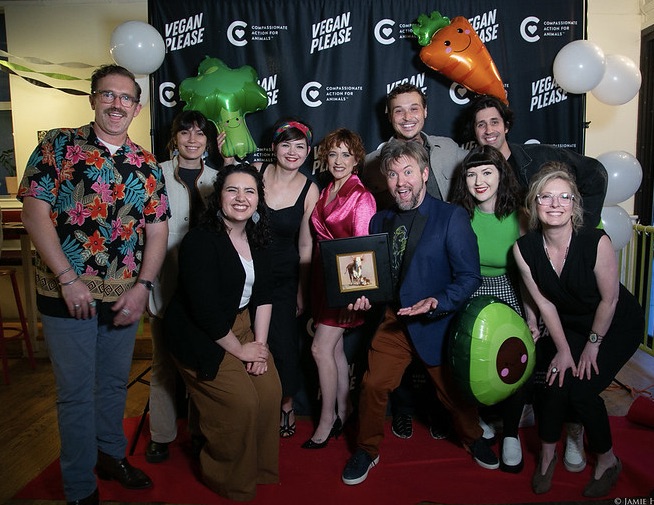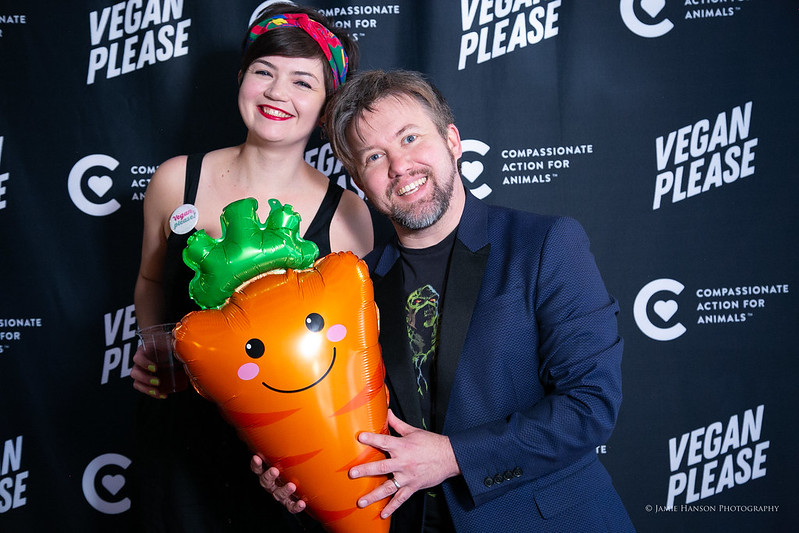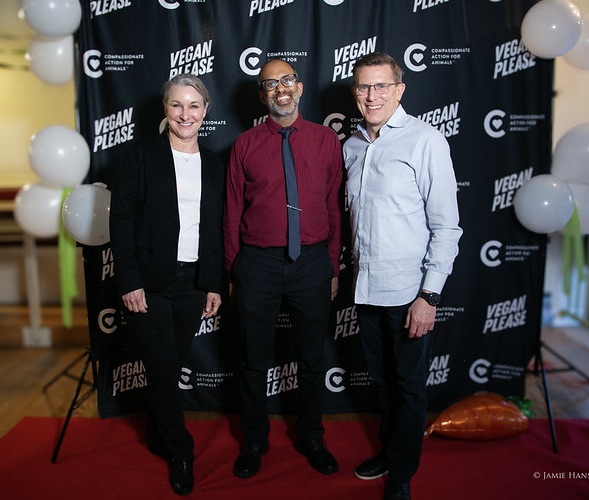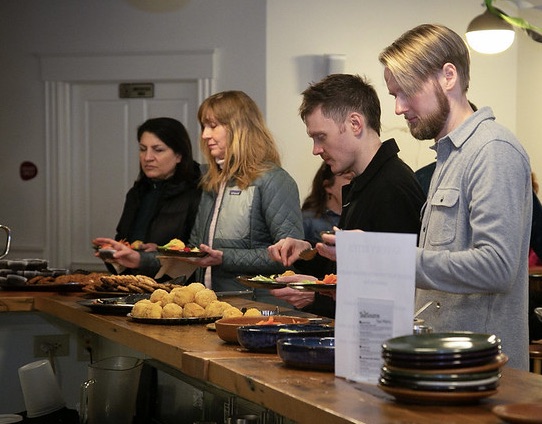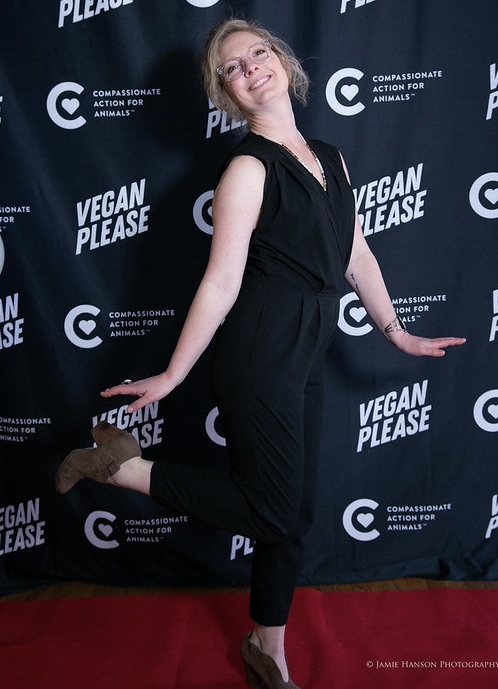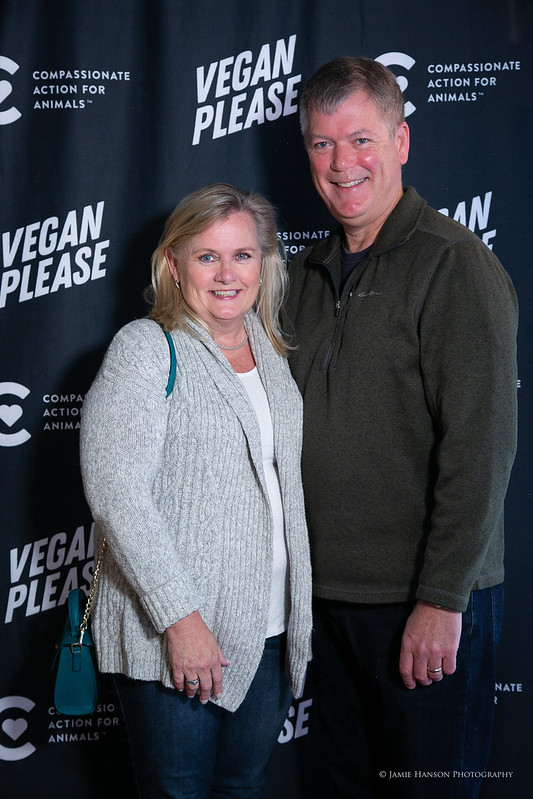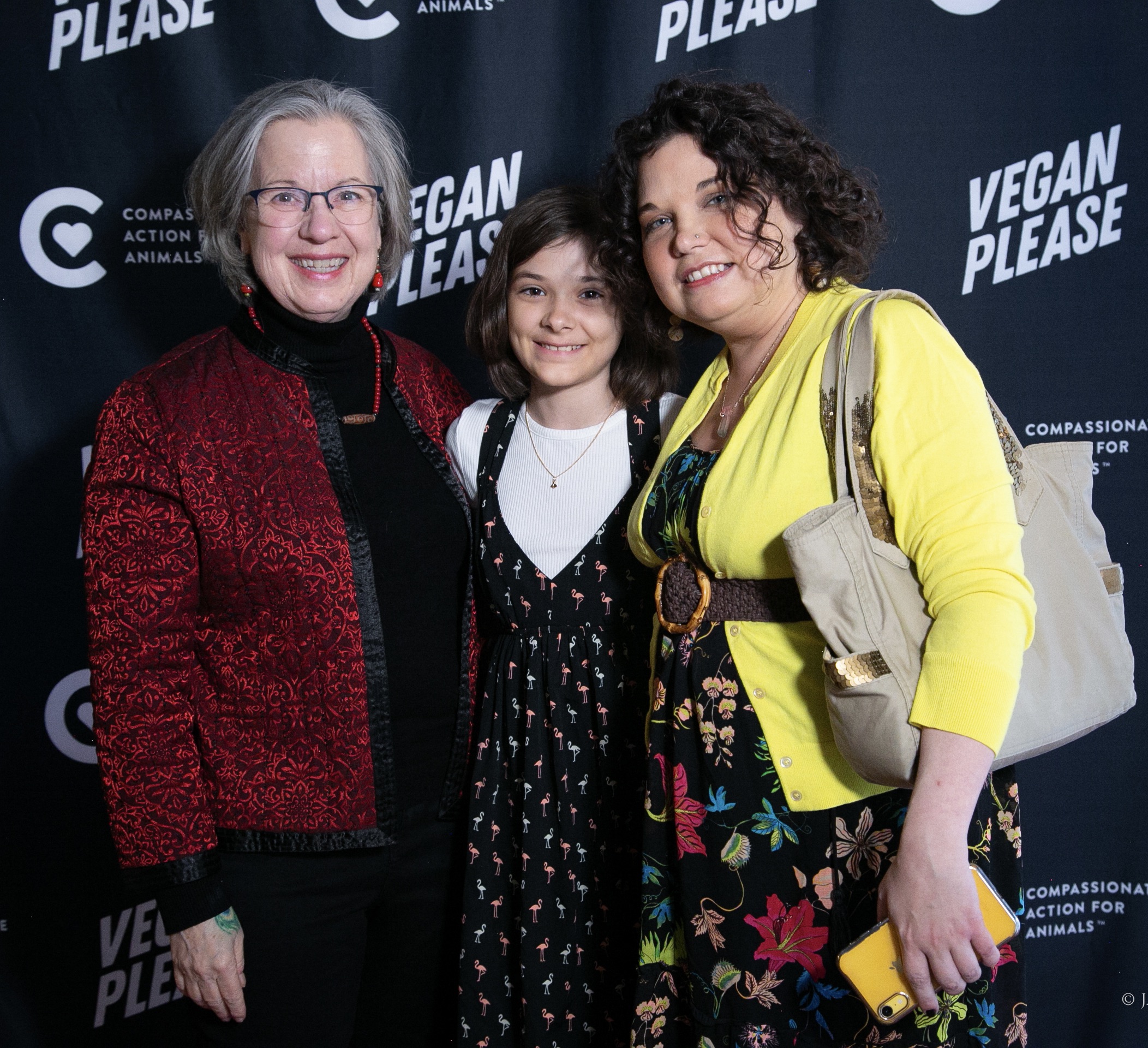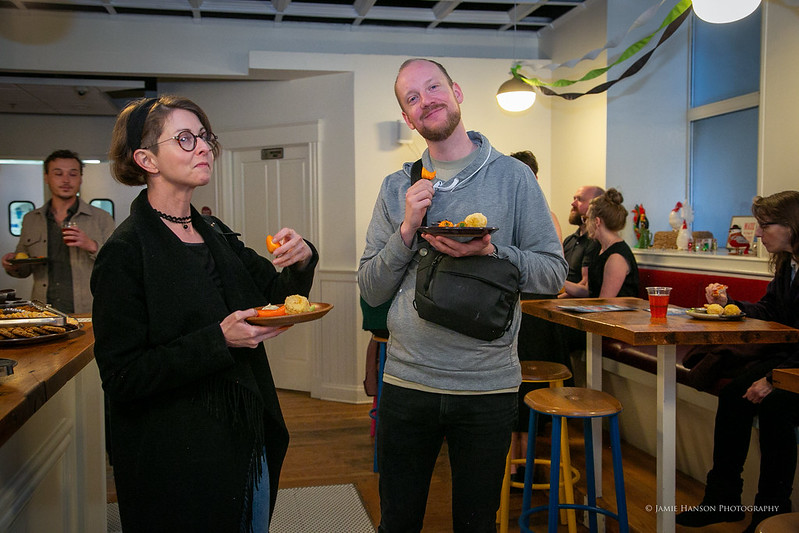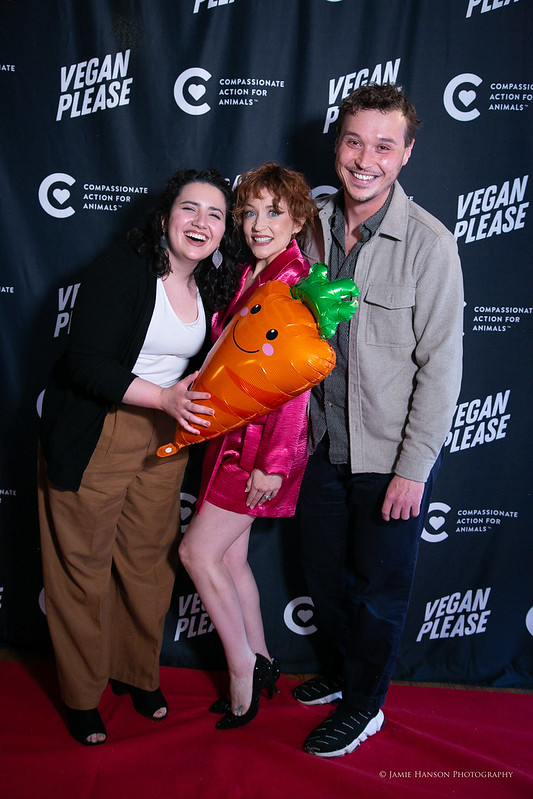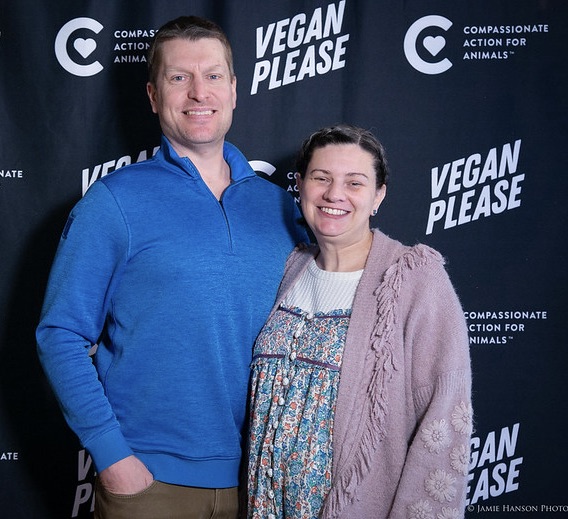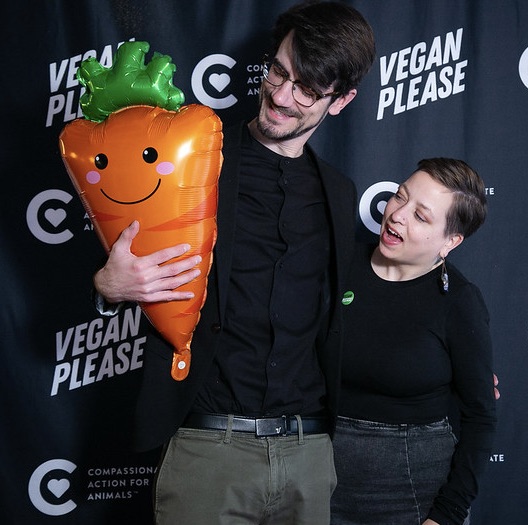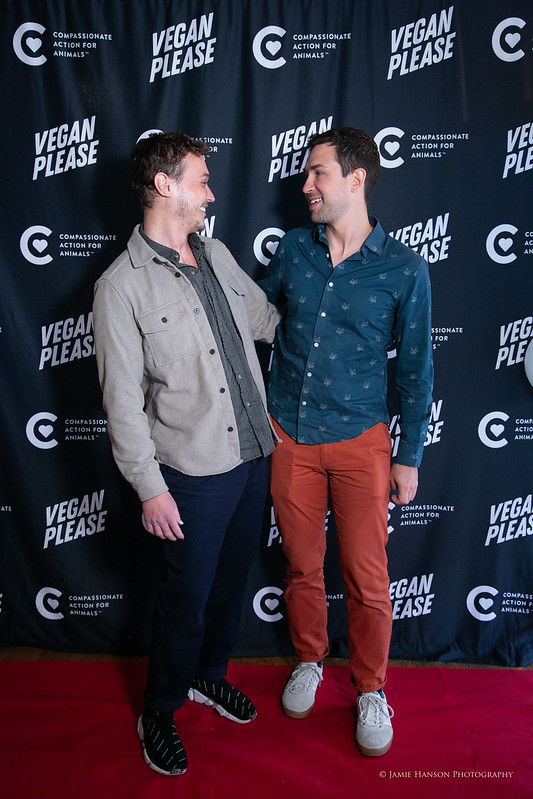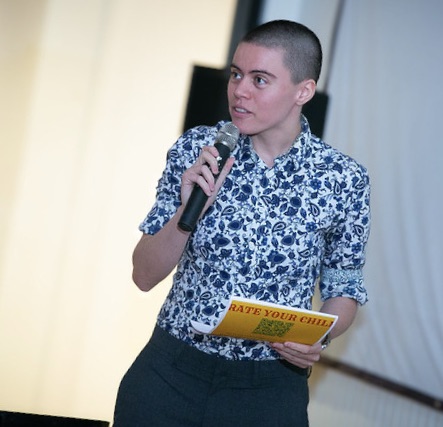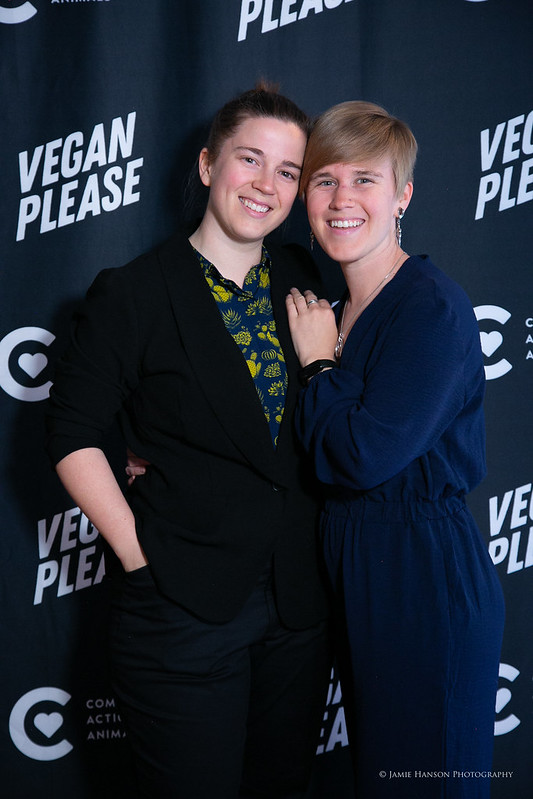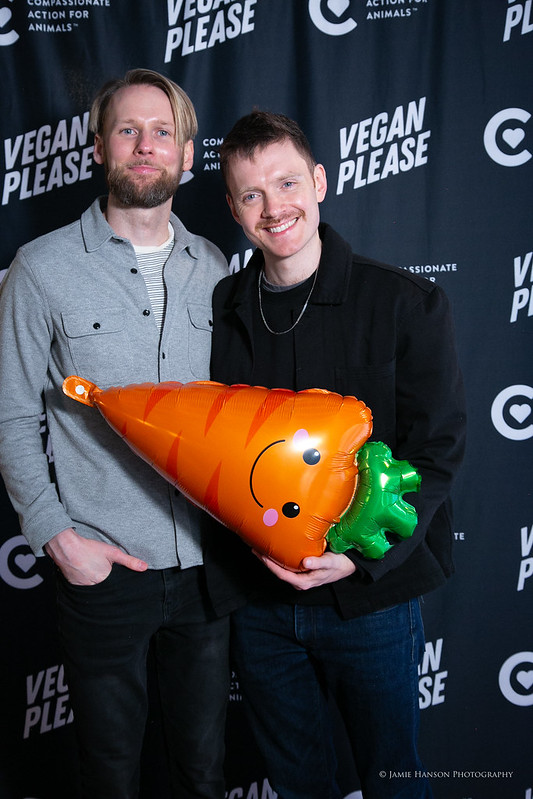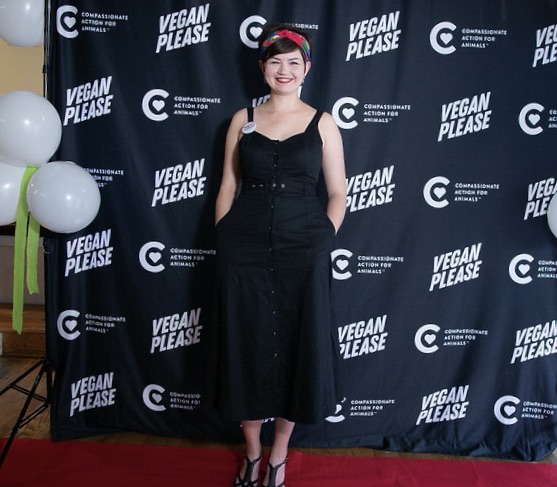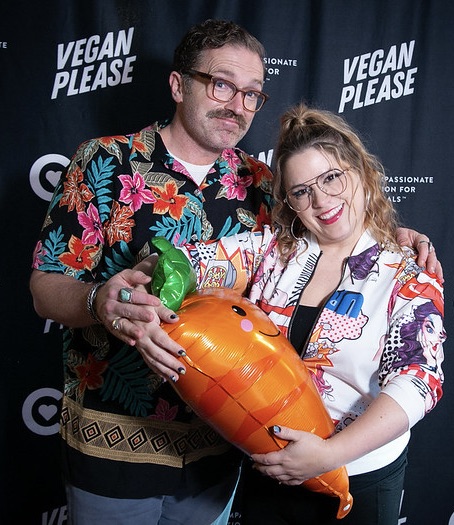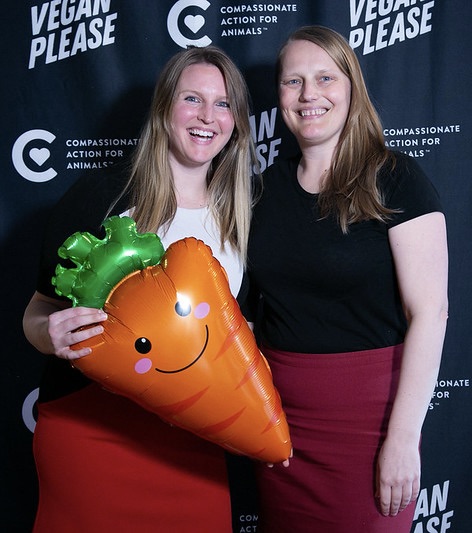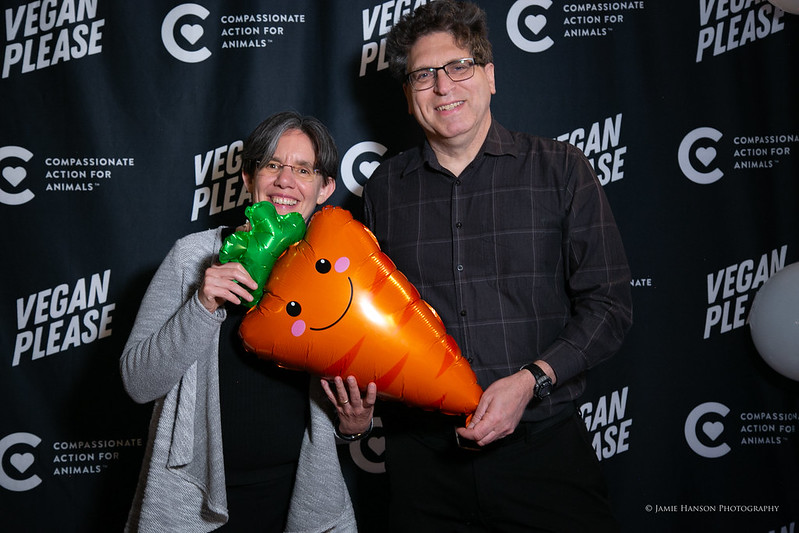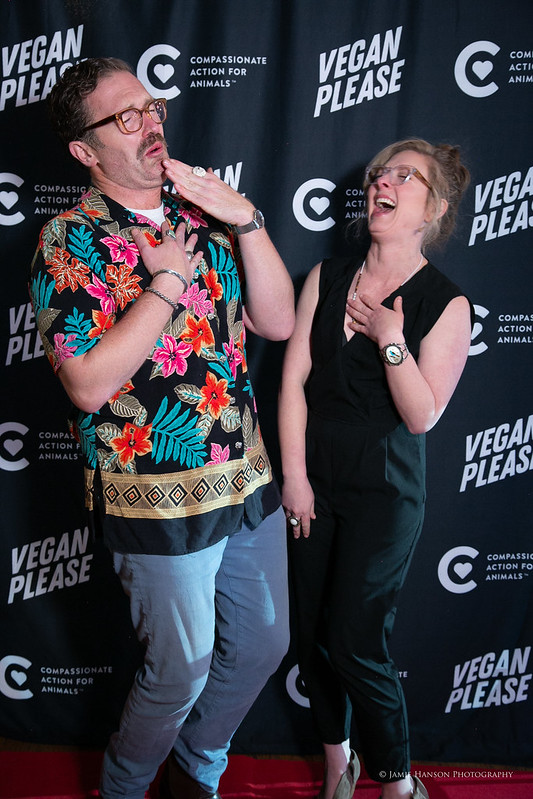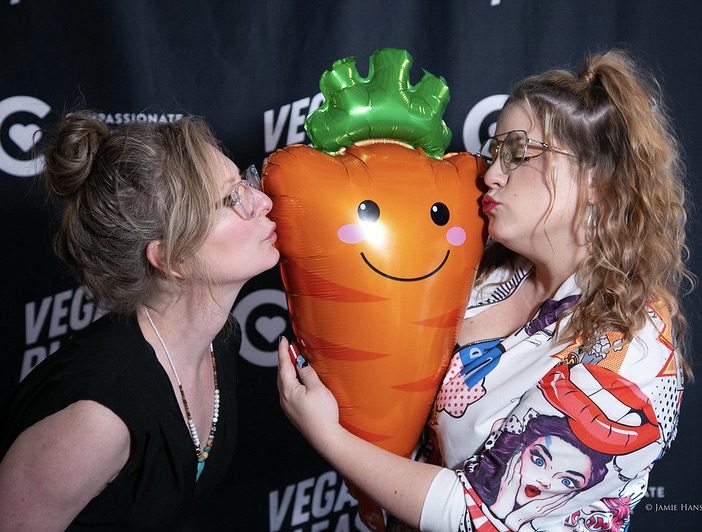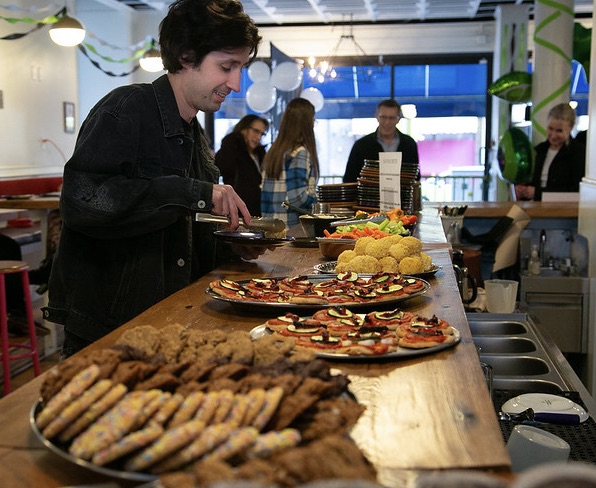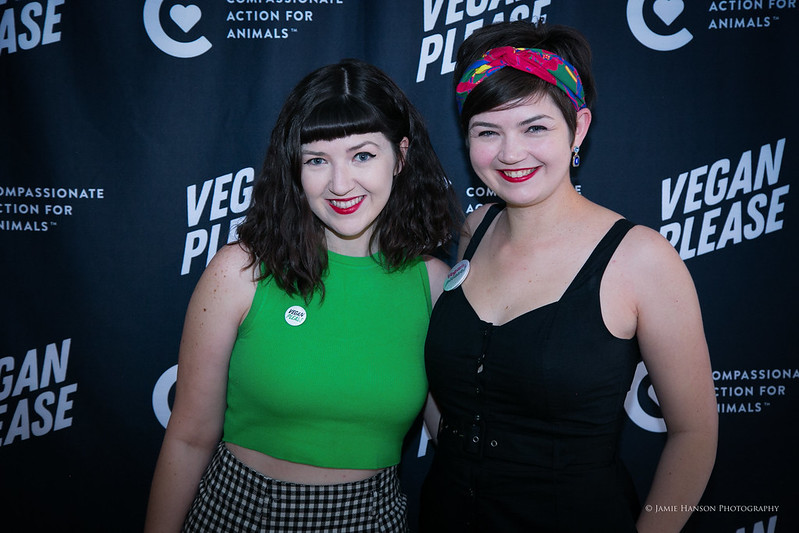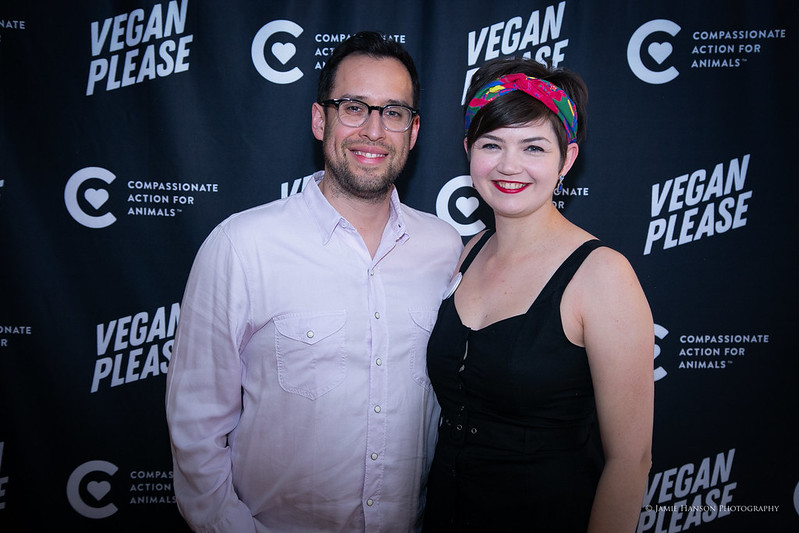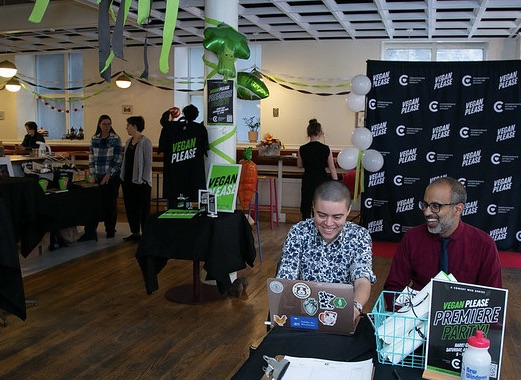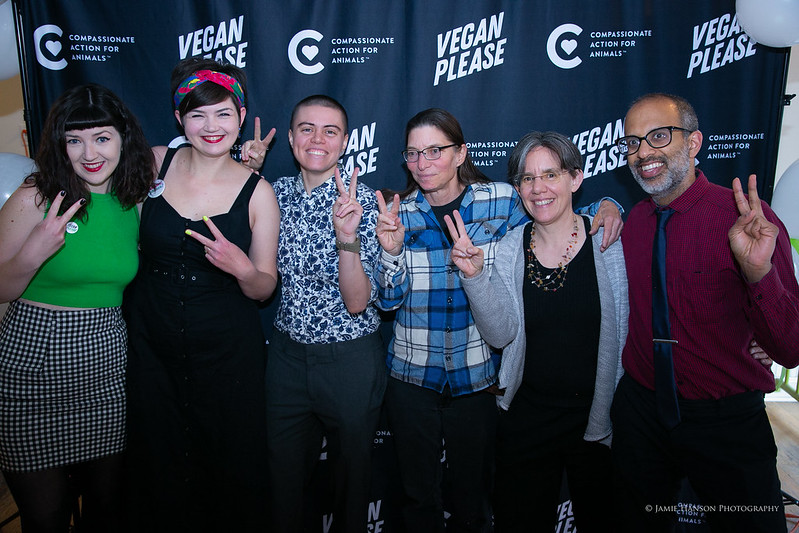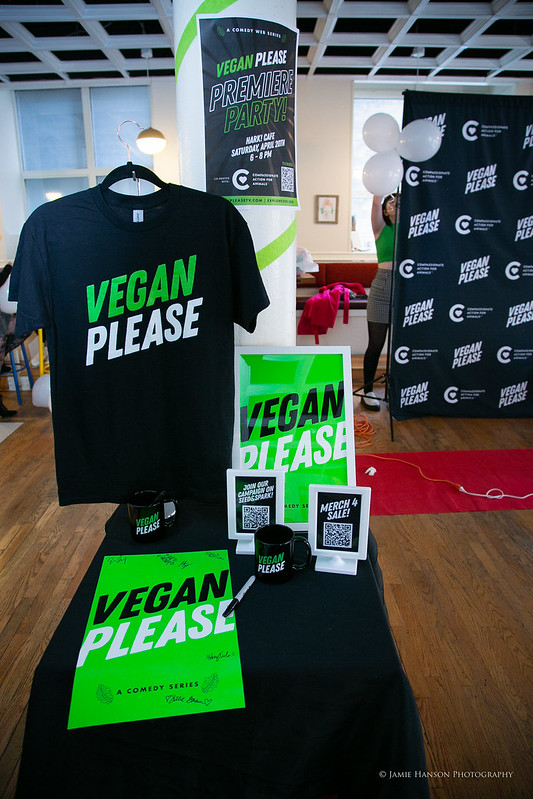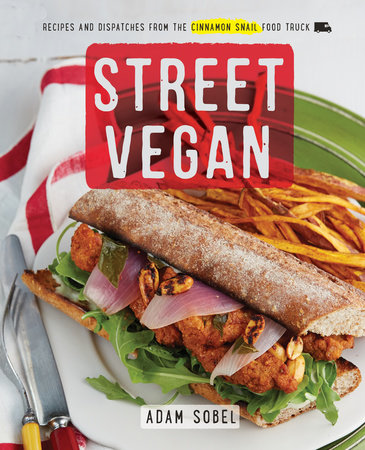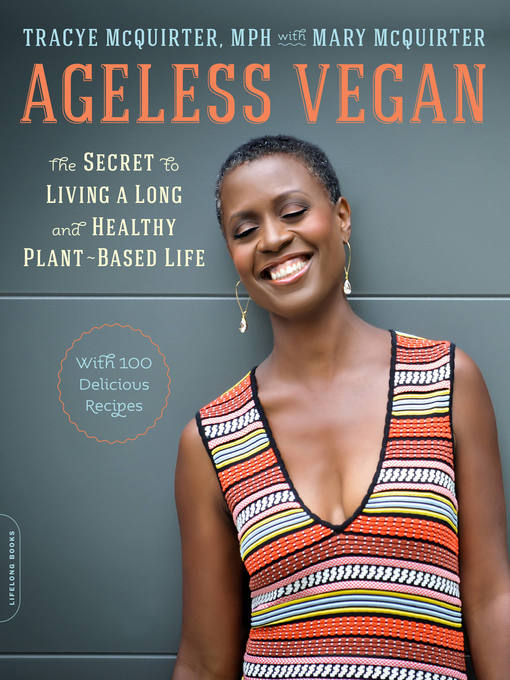You can subscribe to our blog using our RSS feed.
Feeding Hungry People Vegan Meals — How You Can Help!
May 14, 2924
Since January, CAA volunteers have been serving delicious vegan meals at Simpson Housing. This initiative helps to ensure that residents of Simpson Housing get nutritious meals — and it was all started by our dedicated volunteers!
The program has been a huge success, with volunteer spots filling up quickly, and appreciative residents who love the meals. But, to keep this program going, we are asking for help from our community.
VEGAN PLEASE Web Series Premiere: Comedy, conversation, and culinary delights
May 13, 2024
Over 50 enthusiastic attendees gathered for the premiere of the new comedy web series, “VEGAN PLEASE,” on April 20th. The event was held at the culmination of Compassionate Action for Animals’ Veg Week 2024. Guests were treated to the debut screening of episodes 1 and 2, followed by an engaging panel discussion with the series’ creators.
The event was held at Hark! Cafe and attendees enjoyed delectable vegan appetizers and desserts, adding to the event’s festive atmosphere. The menu featured mouthwatering mini pizzas, arancini, and brownies, all provided by Hark! Cafe. Known for their commitment to vegan, gluten-free, and scratch-made cuisine, these offerings delighted attendees, with food and a non-alcoholic drink included in the ticket price.
For an extra dose of premiere extravaganza, guests also had the opportunity to have their pictures taken on the mini red carpet!
Street Food | Vegan Recipe Club | July 2024
Vegan Recipe Club for July — Potluck Discussion With Zoom Option: Street Vegan by Adam Sobel
Date/Time
Tuesday, July 16, 2024
6:30pm – 7:30pm
The cookbook and recipes for this month will be Street Vegan (2015) by Adam Sobel
Click here to download the recipes for this month.
If you are curious about vegan cooking, this club is for you! Each month participants make three recipes from popular cookbooks then share their reflections with the group. This month will feature an in-person discussion and potluck as well as the usual zoom option. Bring one of the dishes from the cookbook to share with other participants over a great discussion. Novice to expert cooks are welcome, as are interested non-cooks. Registration not required.
About Street Vegan
This is how the publisher describes the cookbook: “Meatless meals revamped by the Cinnamon Snail, the vegan food truck with a cult following. What’s the secret behind the Cinnamon Snail’s takeover of New York City streets? In all kinds of weather, vegetarians, vegans, and omnivores alike queue up for addictive vegan cuisine from truck owner Adam Sobel. Now Adam brings his food straight to your kitchen, along with stories of the challenges of working on a food truck while still finding ways to infuse food with imagination, love, and a pinch of perspective. Street Vegan brings the energy and passion of the Cinnamon Snail’s creative cooking from truck to table.”
This month’s featured recipes:
- Tequila Lime Tostones – pg 90 – 91
- Korean Barbecue Seitan – pg 130
- Gooey Salted-Caramel Pecan Turtle Bars – pg 196
optional:
- Chickpea Crab Cakes – pg 74
- Bangin’ Bao – pg 134
- Sesame Bean Paste Bao Bun Filling – pg 135
- Peking Seitan Bao Buns Filling – pg 136
- Oyster Mushroom Bao Buns with Kimchi and Sriracha Mayonnaise – pg 136
Vegan Recipe Club General Details
The Vegan Recipe Club is for everyone—those curious about vegan cooking and those more experienced with it. The club explores plant-based recipes created by cooks of varying cultures and nationalities and cookbooks are suitable for the novice to experienced cook.
This club aims to feature recipes that are great tasting and support the health of participants. It’s a chance to build community with others interested in vegan cooking. Best of all, these meals also help the animals and the environment!
How does it work?
In the month prior to the Vegan Recipe Club Meeting, you can download the recipes for free from the top of this page.
Try making one or more of the recipes then come to share and discuss what you thought about them with the group.
The group is facilitated by volunteer and board member Henry Patterson of Compassionate Action for Animals (CAA).
If you have questions about the recipes or the Vegan Recipe Club between meetings, email [email protected].
Join us online — or in person!
The club meets monthly on the third Tuesday of each month at 6:30 pm. Meetings are held via Zoom and occasionally in person; see details below.
Join Zoom Meeting, with passcode 467109
Or use the dial-in information: Meeting ID: 815 7424 7392 Passcode: 467109 Dial by your location: +1 301 715 8592 US (Washington DC) +1 929 205 6099 US (New York) +1 312 626 6799 US (Chicago) +1 253 215 8782 US (Tacoma) +1 346 248 7799 US (Houston) +1 669 900 6833 US (San Jose)
Find previous recipes
View more information and previous recipes
Health and Longevity | Vegan Recipe Club | June 2024
Vegan Recipe Club (online) for June: Ageless Vegan by Tracye McQuirter, MPH with Mary McQuirter
Date/Time
Tuesday, June 18, 2024
6:30pm – 7:30pm
The cookbook for this month is Ageless Vegan – 2018 – by Tracye McQuirter, MPH with Mary McQuirter
If you are curious about vegan cooking, this club is for you! Each month, participants make three recipes from popular cookbooks then share their reflections with the group. Novice to expert cooks are welcome, as are interested non-cooks. Registration not required.
Distribution of Garden Boxes in North Minneapolis
Join one of our community partners for the distribution of Garden Boxes in North Minneapolis.
The event is taking place Saturday, May 18th 10am – 5pm at Oak Park Community Center 1701 Oak Park Avenue N. Minneapolis.
Please let Michael Chaney (contact information below) know if you would like to volunteer to garden during the event. Also, if you live or work in North Minneapolis there is an opportunity to have your own raised garden by sponsoring these boxes. Details will be shared at the event and coordination with Michael will continue after this event.
There are over 400 beautiful garden boxes that will be deployed throughout the metro community as a symbol of our commitment to planting the seeds of change, operationalizing the sustainable development goals, implementing climate mitigation solutions and collectively crafting a food focused future.
Contact: Michael Chaney, Project Sweetie Pie (763) 227-4881
Continuing Your Compassionate Journey for the Long Haul
April 17, 2024
As those of you who are already eating more compassionately can attest, it’s a journey of a lifetime. It’s sometimes challenging but always rewarding — for you, for the planet, and most importantly, for the animals.
CAA supports you on your journey

CAA’s support doesn’t stop with the end of Veg Week. Compassionate Action for Animals is in it for the long haul. We will continue to offer a variety of events, tips, and resources throughout the year.
Most importantly, we are a community of like-minded individuals, ready to enthusiastically support you in any way we can. After all, each one of us has seen how important support is.
One of our community members shared an important aspect to keep in mind as you continue on this journey: “Take it slow, give yourself grace.” -Allison Gamble
Fuel Your Journey: Books, Films, and Blogs on Vegan Topics
April 17, 2024
Whether you’re just starting out or have made a longer commitment to dietary change, it’s always good to keep learning. Getting more details on issues related to plant-based eating can help cement your resolve to continue down that pathway. It may also help in answering questions from friends and family. Facts are important — and they are on our side.
Throughout the year, CAA offers regular opportunities to learn about the impact of diet on nonhuman animals. This includes tours of sanctuaries, petition campaigns, and outreach events. We also periodically sponsor events that promote the health benefits of a plant-based diet such as our recent talk by Dr. Greger. He spoke about his book How Not to Age, which details the health benefits of a whole foods plant-based diet.
Another area where CAA provides information is on the environmental issues related to plant-based eating. We hope you caught our Documentary and Social Action Night on April 14. Or perhaps you were able to check out our booth at the Eden Prairie Eco Expo on April 20. Stay tuned for more throughout the year.
Navigating Questions and Comments: Discussing Your Vegan Lifestyle With Others
April 17, 2024

Today’s topic is fielding questions and comments about your food choices. Sometimes these come from genuine curiosity. Sometimes it feels like someone is challenging your choice.
Kim Milligan from our community suggests: “Keep the channels of communication open without judgment and share what being a vegan means to you personally and how your life has changed since becoming a vegan…people will tend to be more open and receptive to what you’re sharing”
We love Kim’s thoughts on this important topic. More suggestions from our community are below. And you can also hear from others firsthand at one of our upcoming events.
Resources for Plant-Based Eating: Community-Recommended Blogs, Cookbooks, Recipes, and Restaurants
We know that a compassionate vegan diet is a new way of eating for many and you may be looking for some guidance. There are lots of books, cookbooks, and recipes available to assist you in your veg journey. Find these resources on the CAA website or through a general internet search. Our community has also stepped up to share some of their favorite resources for cooking and eating plant-based:
Recomended vegan blogs and websites:
Affordable Vegan Eating: Busting the Cost Myth
April 17, 2024
Today’s topic is affordability: one top-of-mind issue for many who are exploring a more plant-based diet.
The myth that vegan food isn’t affordable
Hand in hand with the myth that vegans don’t get enough protein (see our previous blog) is one that vegan food isn’t affordable. Today, we will explode this myth as well. We know that inflation has been particularly hard on food costs. Plant-based foods are not immune to these price increases. However, they have fared better than many non-vegan options (for example the Avian Flu has not only caused great suffering for birds, but it has raised prices for eggs and chickens). And there are ways to minimize the impact of inflation.

“Do more home cooking! Vegan foods such as rice, pasta, vegetables, and legumes are easy to afford. It’s easy to look for recipes online or in cookbooks to find something that piques your interest, without the financial stress.”
-Beatrix Olson
Eating whole plant-based food is key
Eating whole plant-based food is not only healthier but it can also help keep your costs down. Many packaged foods can be expensive, including yummy vegan versions. These can be kept as treats. Eating foods in their most intact form is often the cheapest option. That includes fruits, vegetables, and dried beans.


